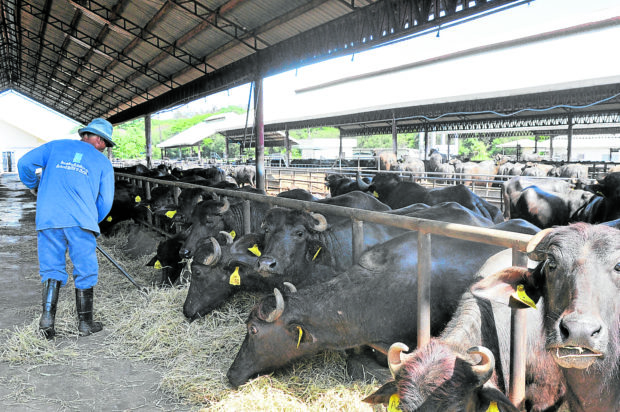
The agriculture department said the Balik-Probinsya, Bagong Pag-Asa Program is gearing up to boost sustainable ruminant production—which includes cattle, carabao, goat, and sheep—in its Balik-Probinsya reintegration sites nationwide. —WILLIE LUMIBAO
MANILA, Philippines — The Department of Agriculture (DA) is seeking to boost sustainable ruminant production in different areas in the country through its Balik-Probinsya, Bagong Pag-Asa (BP2) Program.
The agriculture department said Friday the program is gearing up to boost sustainable ruminant production—which includes cattle, carabao, goat, and sheep—in its Balik-Probinsya reintegration sites nationwide.
“We are happy to contribute to the call of President and DA Secretary Ferdinand R. Marcos, Jr. to produce more food and to ensure our country’s food sufficiency, while at the same time, helping boost the ruminant production in the country,” DA Climate Resilient Agriculture Office and BP2 Program Director Alicia G. Ilaga said during the briefing on Establishing a Business Model for a Sustainable Cattle Production on July 19.
Citing data from the Philippine Statistics Authority, industry expert Arnel Corpuz said that the Philippines has an estimated 2.6 million heads of cattle inventory as of January 2022, but has an annual beef requirement of close to 2 million heads based on the annual per capita requirement of 3.15 kilograms and the population of 110 million.
“And ibig sabihin po nito, kung wala po tayong gagawing intervention ay mauubusan po tayo ng baka. Kaya po maganda itong ating proyekto na masimulan sa ating mga AMIA (Adaptation and Mitigation Initiative in Agriculture) at BP2 villages,” Corpuz said during the briefing.
(This means that we will run out of cattle if we do not have any intervention. That’s why it is good to start this project in our AMIA and BP2 villages.)
According to the agriculture department, under the project, Balik-Probinsya beneficiaries and local farmer residents in identified DA BP2 reintegration sites in different parts of the country will be immediately engaged in beef finishing or fattening programs, which would allow them to maximize the market value of their cattle.
“They will also be engaged in forage development to ensure feed supply for their livestock and to help improve their income by assuring maximum weight gain for their livestock,” the DA said.
“For the next phase of the project, the beneficiaries will be engaged in the breeding program that would allow the production of cross breeds which can help provide high-value, high-quality, and low-cost beef products in the local market,” it added. — Andy Hoo, INQUIRER.net trainee

